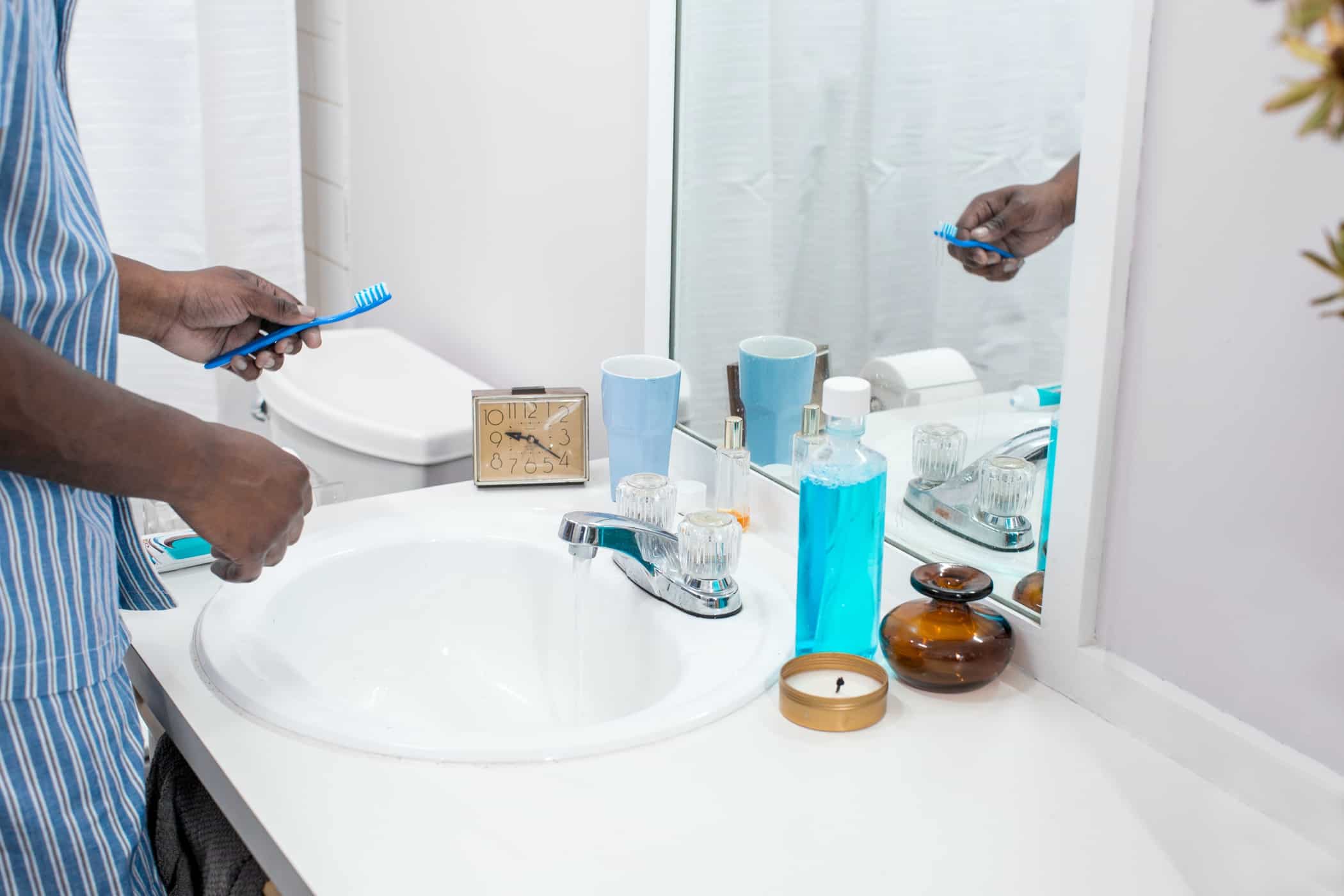Investigate Potential Causes of the Odor

My bathroom sink smells – Unpleasant odors emanating from bathroom sinks can stem from various underlying causes. Understanding these potential sources is crucial for effective odor elimination and maintaining a hygienic bathroom environment.
My bathroom sink smells like a stagnant pond, a musty reminder of unwashed dishes and forgotten hair. But there’s a solution that not only promises to eliminate the odor but also elevate the entire ambiance of my bathroom: a bathroom granite countertop with sink.
Its sleek surface, coupled with the natural beauty of granite, will transform my sink from a source of unpleasantness to a centerpiece of elegance. And with its antimicrobial properties, it will keep the germs and odors at bay, ensuring my bathroom remains a sanctuary of cleanliness and freshness.
One common culprit is clogged drains. When hair, soap scum, or other debris accumulates in the drain, it creates a breeding ground for bacteria and mold. These microorganisms thrive in moist environments and produce foul-smelling gases.
Bacteria Buildup
Bacteria buildup is another significant contributor to bathroom sink odors. The warm, humid conditions of bathrooms provide an ideal environment for bacteria to flourish. These bacteria can accumulate on surfaces like the sink basin, faucet, and drain, releasing unpleasant odors as they decompose organic matter.
Faulty Plumbing, My bathroom sink smells
Faulty plumbing can also lead to bathroom sink odors. Leaks in pipes or traps can allow sewer gases to escape into the bathroom, resulting in a strong, unpleasant smell. Additionally, poorly ventilated bathrooms can trap these gases, exacerbating the odor problem.
Provide Solutions for Eliminating the Odor: My Bathroom Sink Smells

Ridding your bathroom sink of unpleasant odors requires a targeted approach. Employing effective cleaning methods and utilizing readily available household items or commercial products can effectively eliminate the source of the smell and restore a fresh and clean environment.
Baking Soda and Vinegar
This classic combination is a natural and eco-friendly solution for odor removal. Pour 1/2 cup of baking soda down the drain, followed by 1/2 cup of white vinegar. Allow the mixture to fizz and bubble for 15-30 minutes. The baking soda neutralizes acids, while the vinegar dissolves buildup and kills bacteria. Flush with hot water to rinse away the solution and debris.
Bleach
Bleach is a powerful disinfectant that can effectively eliminate odors caused by bacteria or mold. Pour 1/2 cup of bleach down the drain and let it sit for 15-30 minutes. Flush with cold water to rinse away the bleach. Caution: Do not mix bleach with other cleaning agents, as it can create harmful fumes.
Commercial Drain Cleaners
Commercial drain cleaners are formulated to dissolve hair, soap scum, and other organic matter that can cause odors. Follow the manufacturer’s instructions carefully. Some drain cleaners are caustic and require protective gear. Flush with plenty of water after using to remove any residue.
Enzyme Cleaners
Enzyme cleaners contain live bacteria that break down organic matter and eliminate odors. Pour the enzyme cleaner down the drain and allow it to sit for several hours or overnight. Flush with warm water to rinse away the solution. Enzyme cleaners are safe for regular use and do not damage pipes.
Preventive Measures to Avoid Future Odors

Maintaining a clean and odor-free bathroom sink is crucial for hygiene and comfort. By implementing preventive measures, you can effectively avoid the recurrence of unpleasant odors and ensure a fresh and inviting bathroom environment.
Regular Maintenance Practices
- Clean the Drain Regularly: Clogged drains are a major source of foul odors. Remove hair, soap scum, and other debris from the drain using a drain snake or chemical drain cleaner.
- Use Drain Screens: Install drain screens in sinks and showers to prevent hair and debris from entering the drain and causing blockages.
- Avoid Harsh Chemicals: While chemical drain cleaners can be effective in removing clogs, they can also damage pipes and contribute to odors. Use natural alternatives such as baking soda and vinegar for regular cleaning.
Additional Preventive Measures
- Ventilate the Bathroom: Proper ventilation helps remove moisture and odors from the bathroom. Use exhaust fans or open windows to circulate air.
- Keep the Sink Dry: Standing water in the sink can create a breeding ground for bacteria and mold, leading to odors. Wipe down the sink after each use and leave the faucet running for a few seconds to drain any remaining water.
- Use Odor-Eliminating Products: Place baking soda or activated charcoal in a small dish near the sink to absorb odors. You can also use commercial odor-eliminating products specifically designed for bathrooms.
- Clean the Overflow Drain: The overflow drain can accumulate soap scum and debris, causing odors. Clean it regularly using a small brush or pipe cleaner.
- Inspect the P-Trap: The P-trap is a U-shaped pipe under the sink that holds water to prevent sewer gases from escaping. Check the P-trap for leaks or clogs and tighten any loose connections.
My bathroom sink smells awful. I’ve tried everything to get rid of the smell, but nothing has worked. I’m starting to think that I need to replace the sink. I’ve been looking at some 32 inch bathroom vanity with sink combos.
They seem like they would be a good option because they come with a new sink and vanity. I’m hoping that will solve my problem. I’ll keep you updated on my progress.